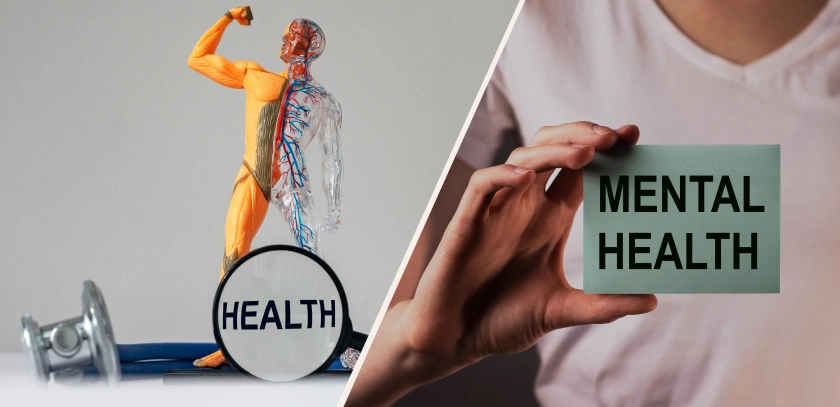
In today’s fast-paced and hectic world, the physical and mental health connection is often overlooked, even though it plays a crucial role in overall well-being. We often prioritize our physical health, going to the gym, eating a balanced diet, and practicing good hygiene, but we may underestimate the profound impact this has on our mental state.
In this blog post, we will examine the intricate connection between physical and mental health, delving into how they mutually impact each other in both positive and negative ways. Stick with us until the end to explore this relationship thoroughly.
How Physical Activity Improves Mental Well-Being
Research has consistently shown that physical activity is beneficial for both our bodies and minds. Regular exercise releases endorphins, also known as the feel-good hormones, which can reduce feelings of stress, anxiety, and depression.
Engaging in physical activities such as jogging, cycling, or even a simple walk in nature can uplift our mood and boost our overall mental well-being.
Physical Fitness Boosts Brain Function
Physical fitness also improves cognitive function. Studies indicate that individuals who exercise regularly have better memory, attention, and problem-solving skills compared to those who are sedentary. The increased blood flow and oxygen supply to the brain improve its functioning and enhance mental clarity. A healthy body leads to a healthy mind.
Physical Activity and Restorative Sleep
Furthermore, taking care of our physical health can promote better sleep patterns. Sleep is essential for our mental well-being, as it allows the brain to rest, recharge, and consolidate memories.
When we exercise regularly, our bodies become tired, creating a natural cycle that encourages us to sleep more soundly. A good night’s rest reduces feelings of irritability and improves our ability to handle stress.
Role of Nutrition In Mental Health
Additionally, a nutritious diet provides the necessary nutrients for optimal brain function. Omega-3 fatty acids found in fish, nuts, and seeds have been linked to reducing symptoms of depression and anxiety. Incorporating fruits, vegetables, and whole grains into our meals not only improves physical health but also positively impacts our mental state. Proper nutrition not only nourishes our bodies but also fuels our minds.
Adverse Effects of Neglecting Physical Health On Mental Well-Being
On the other hand, neglecting our physical health can have detrimental effects on our mental well-being.
- Lack of exercise and a sedentary lifestyle can contribute to weight gain,
- Decreased energy levels
- Increased risk of chronic diseases which are associated with higher levels of stress, anxiety, and depression.
- Inadequate sleep and poor diet can also exacerbate these issues
How to Take Care of Your Mental and Physical Health
Stay Active Without the Gym
You don’t need a gym membership to stay physically fit. We’ll discuss simple ways to incorporate exercise into your daily routine, whether you’re a gym enthusiast or not.
Mindful Eating for a Healthier You
Food is not just fuel for your body; it’s also essential for your mind. Discover how you can make nutritious food choices that benefit both your physical and mental health.
The Power of Quality Sleep
Are you getting enough sleep? Learn why a good night’s rest is crucial for your mental well-being and get tips on improving your sleep hygiene.
Stress Management Techniques
Life can be stressful, but there are effective ways to manage it. We’ll explore relaxation techniques and stress-busting strategies to keep your mental health in check.
Finding Balance in Your Life
Balancing work, social life, and self-care can be a challenge. Let’s discuss how to strike that balance and maintain a healthy equilibrium.
Building Resilience
Resilience is the key to bouncing back from life’s challenges. We’ll talk about developing resilience and coping mechanisms to navigate tough times.
Seeking Professional Help When Needed
Sometimes, it’s okay to ask for help. We’ll tackle the importance of seeking professional support when dealing with mental health issues.
Final Words
In conclusion, physical health and mental well-being are intrinsically connected. Taking care of our bodies through regular exercise, proper nutrition, and adequate sleep directly affects our mental state, promoting feelings of happiness, reducing stress levels, and enhancing cognitive functions. By prioritizing our physical health, we can pave the way for a happier, healthier, and more fulfilling life.




